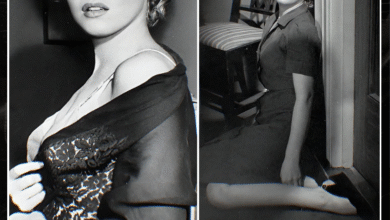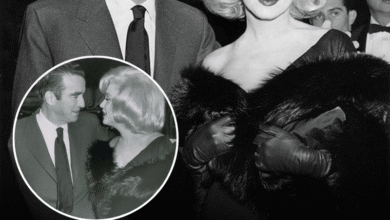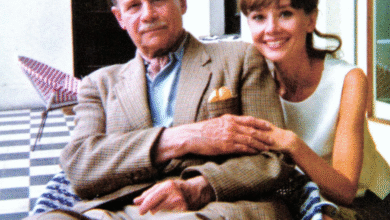Trapped in a Convent Shed—The Scene That Could Earn Murphy His Second Oscar
OPINION: This article may contain commentary which reflects the author's opinion.
In the quiet town of New Ross, Ireland, Christmas in 1985 brought more than just holiday cheer for Bill Furlong, a coal merchant and father of five. Beneath the surface of his daily routine, a storm of emotions was about to erupt as Bill uncovered the dark secrets hidden within the walls of a local convent. Played by Cillian Murphy, Bill’s journey in Small Things Like These is an extraordinary exploration of moral conscience, personal trauma, and the quiet power of kindness in the face of injustice.
Bill, a man of few words, lived a life that seemed ordinary at first glance. He delivered coal to the homes of the town’s residents and the convent, where the nuns ran a shelter for women deemed “fallen” by society. However, as Bill discovers, this shelter hides a horrific truth. The convent, part of the Magdalene Laundries scandal, was not a place of refuge but a house of forced labor, abuse, and human suffering.
Murphy’s portrayal of Bill Furlong is a masterpiece of minimalist acting, earning critical acclaim for its subtle yet profound emotional depth. Despite having only about 10 minutes of dialogue in the entire 90-minute film, Murphy’s performance speaks volumes through his expressive face and body language. In the film, Bill’s quiet demeanor masks a whirlwind of inner conflict as he uncovers the abuse happening under the roof of the convent. His discovery of a young woman in the convent’s shed triggers a moral dilemma, forcing him to confront the darkness that he himself had once suffered in his own childhood.
Bill’s backstory is revealed through poignant flashbacks, showing the scars left by his own mother’s abandonment and the prejudice she faced as an unmarried woman. This personal connection to the plight of the women in the convent stirs a deep sense of empathy in Bill. His inability to look people in the eye and his faint air of defeat convey the weight of a man who has been shaped by trauma yet refuses to turn a blind eye to the suffering of others. His journey becomes one of self-discovery, as he must reconcile his own past with the present horrors he witnesses.
Murphy’s performance has been widely praised for its ability to convey a tumultuous inner world with minimal outward expression. The Guardian describes his portrayal as “verging on martyrdom,” and The New York Times praises the way his “panic simmers like lava below a thin surface,” bringing an intensity to Bill that resonates deeply with viewers. Through his silent moments, Murphy captures the essence of a man who is caught between the desire for normality and the call to do what is right.
The film, while slow in its pacing, uses this deliberate structure to build tension and allow the emotional weight of the story to breathe. The tension between Bill’s quiet, reserved nature and the growing urgency of his conscience serves as the emotional core of the film. As the story unfolds, Bill’s quiet acts of kindness, particularly towards a young woman trapped in the convent’s abuse, push him toward a decision that will ultimately change the course of his life.
Bill’s personal battle serves as a reflection of the larger societal struggle, addressing the trauma of Ireland’s Magdalene Laundries—a dark chapter in the country’s history. The film does not shy away from the harsh realities of these institutions, but instead, it focuses on the impact of these horrors on individuals like Bill. The story of Small Things Like These is not just about confronting the past, but about finding the courage to act in the face of evil, to stand up for those who cannot stand for themselves.
In the end, Cillian Murphy’s Bill Furlong proves that heroism does not always come with grand gestures. Sometimes, it is the quiet, understated moments of moral clarity that define a person’s true character. Small Things Like These reminds us that even in the most ordinary lives, extraordinary acts of courage can emerge. Bill Furlong, with his quiet determination and deep sense of right and wrong, represents the best of us—the ones who rise to the occasion when it matters most, even when the cost is great.


